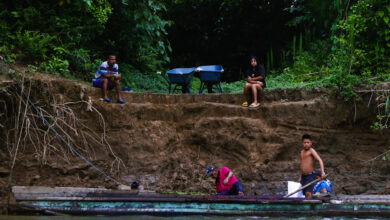85% of Uruguay’s poorest don’t finish high school
Listen this article
Some 85 percent of Uruguay’s poorest students do not finish high school, according to a study by the National Educational Evaluation Institute (INEEd) presented Tuesday in Montevideo.
“The most significant difference is between fifths of the population in terms of family income. Students who come from the most prosperous fifth have a graduation rate of 70 percent, while just 15 percent graduate in the poorest fifth,” INEEd director Mariano Palamidessi told the press.
The director said the “good news” in that the report identifies “two key elements” for improving the situation: maintaining a positive climate in the classroom and keeping students from repeating school years.
Creating a favorable climate at school between students and teachers and finding ways to cut school-year repetitions would “clearly improve learning levels.”
The report also notes that Uruguay’s high school graduation rate has grown “very slowly” since the 1980s compared with some other countries. Peru and Chile have left Uruguay behind in per capita years of education, and Costa Rica, while not surpassing Uruguay, shows a “more dynamic evolution.”
Palamidessi said that despite international evaluations showing Uruguay’s elementary and secondary education in good standing compared with other countries of Latin America, there remains a “persistent difficulty” in improving students’ “unequal” performance.
That is reflected, according to the report, in low performance levels in the categories of language, sciences and mathematics, which keeps “a large number of adolescents” from staying in the educational system and graduating.
“Repeating a grade could be considered an educational practice that increases inequality. The educational system does not help students compensate for repeating a school year and being out of step with other children, adolescents or young adults who didn’t have to do that,” the study says.
University of the Republic (Udelar) Rector Roberto Markarian said the “big decline” in quality is also due to decreased investment, since without attractive schools, good teachers who can study abroad, investments in postgraduate studies and good salaries, no improvement is possible.
What Uruguayan public education needs is an investment of 6 percent of GDP and another 1 percent in research for several years, a “necessary demand” according to the Udelar rector.
EFE |





